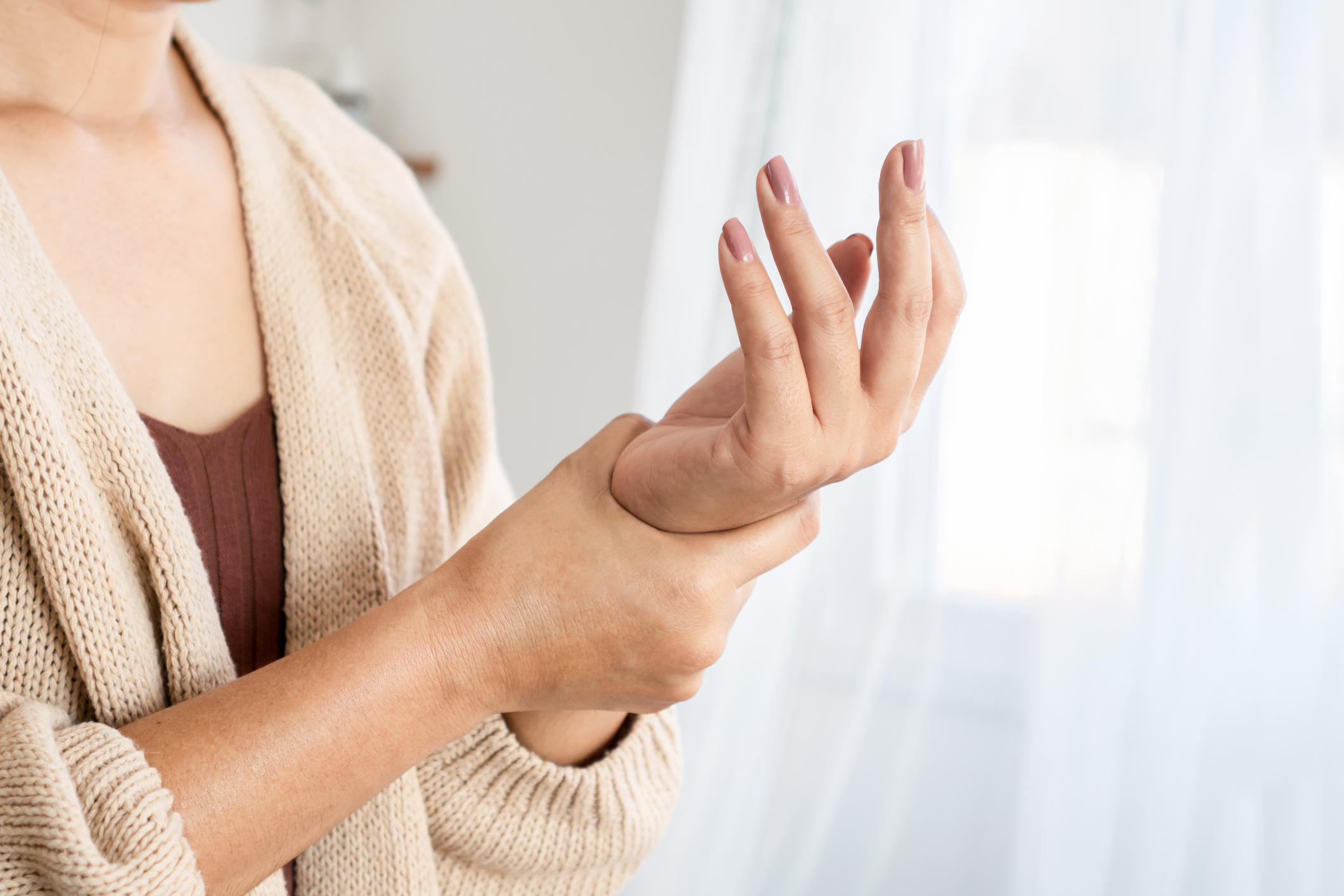Get Easy Health Digest™ in your inbox and don’t miss a thing when you subscribe today. Plus, get the free bonus report, Mother Nature’s Tips, Tricks and Remedies for Cholesterol, Blood Pressure & Blood Sugar as my way of saying welcome to the community!
The bone-weakening effects of a common thyroid medicine

Approximately 30 million Americans suffer from hypothyroidism, a condition where the thyroid gland doesn’t make enough thyroid hormones.
Symptoms include weight gain, fatigue, depression, brain fog and more, but it can be hard to get an accurate diagnosis since these symptoms mimic many other conditions.
Still, roughly 23 million are treated with a drug called levothyroxine, sold as Synthroid, making it one of the most commonly prescribed thyroid medications across the country.
However, it turns out that while the drug might help patients manage their thyroid levels, it could also be eating away at their bone health, leaving them at risk for osteoporosis and life-threatening fractures.
Here’s what you need to know to reduce your risk if you’re taking thyroid medication…
Loss of bone mass and density
According to Elena Ghotbi, M.D., a postdoctoral research fellow at Johns Hopkins University, “Data indicates that a significant proportion of thyroid hormone prescriptions may be given to older adults without hypothyroidism, raising concerns about subsequent relative excess of thyroid hormone even when treatment is targeted to reference range goals.”
And since previous studies had already proven a link between high levels of thyroid hormone and increased bone fracture risk, her team set out to determine whether taking levothyroxine could present a danger to skeletal integrity.
The researchers started with data from the Baltimore Longitudinal Study of Aging (BLSA) — the longest-running study on aging — and assessed 81 patients taking levothyroxine and 364 non-users.
After following up for over six years, the scientists determined that people who used levothyroxine suffered a greater loss of total body bone mass and bone density — even if they had normal thyroid levels.
Is taking levothyroxine a good idea?
Because of this heightened bone risk, study co-author, Jennifer Mammen, M.D., Ph.D., advises that adults taking levothyroxine should discuss their treatment with their doctor. “A risk-benefit assessment should be conducted, weighing the strength of the indications for treatment against the potential adverse effects of levothyroxine in this population,” she said.
She also recommends requesting regular tests to monitor your thyroid function since their data shows that sometimes, patients have been taking levothyroxine for many years. Yet, it’s not clear why it was initially prescribed or even if it’s still necessary.
Natural thyroid support
Most doctors will test levels of thyroid stimulating hormone (TSH) levels if they suspect a thyroid issue. But experts have suggested that the standard TSH range could be missing as many as 75 percent of people with low thyroid.
For this reason, people who have felt they had to find their own relief, have turned to natural options for their low thyroid.
For optimal health, the thyroid requires specific nutrients found in a healthy well-rounded diet or through supplementation. Those include:
- Iodine — Essential for healthy thyroid function and efficient metabolism. It’s also the fuel the thyroid needs to create critical T3 and T4 hormones.
- L-tyrosine — A powerful amino acid that partners with iodine to create T3 and T4 hormones.
- Selenium — A naturally occurring trace mineral that helps convert relatively inactive T4s to the active thyroid hormone T3.
- Zinc — An essential mineral in converting the T4 hormone to the more active T3, which helps support a healthy metabolism. It also releases vitamin A stored in the liver to help support a healthy thyroid.
- Copper — Another mineral, it helps stimulate the thyroid and protect against too much (T4) building up in the blood.
Finally, avoid BPA and phthalates as much as possible since these chemicals lower thyroid levels. That means avoiding canned foods with a lining, plastic bottles, bowls and dinnerware, and going organic in your fruits and vegetable choices.
Editor’s note: Did you know that when you take your body from acid to alkaline you can boost your energy, lose weight, soothe digestion, avoid illness and achieve wellness? Click here to discover The Alkaline Secret to Ultimate Vitality and revive your life today!
Sources:
Common thyroid medicine linked to bone loss — EurekAlert!
Hypothyroidism: More Patients and Less Treatment? — Paloma Health














